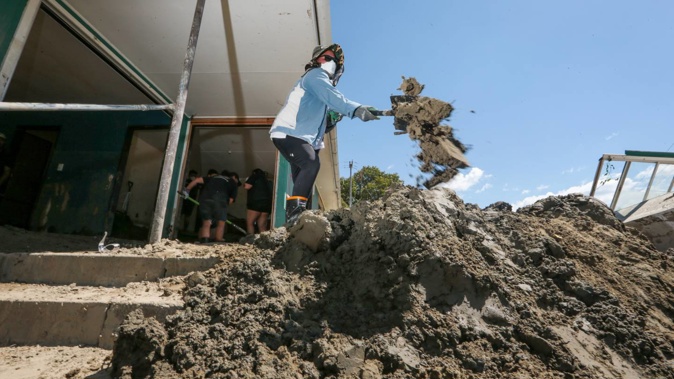
Napier MP Stuart Nash has conceded police “perhaps…didn’t quite get this right” in the initial responses to Cyclone Gabrielle under his watch as Minister of Police when it crashed into Hawke’s Bay on the night of February 13.
The concession came at a meeting at Eskdale on Sunday, billed as a follow-up meeting about crime after the cyclone, although joining Nash on the stage were Opposition National Party police spokesman and former police officer Mark Mitchell and Act Justice spokesman Nicole McKee.
But Nash, no longer the Police Minister but taking a role as Hawke’s Bay Cyclone Recovery minister, said it was a fast-moving situation, and reviews would establish what could have been done better, and what could be done to ensure people could live safer and secure lives in the future.
Nash faced a barrage of challenges, often about the Labour Government’s handling of crime, prompting him at one stage to ask if anyone was “interested in hearing about the recovery.”
The first community meeting had been held at Eskdale in mid-March, with concerns expressed about the level of warnings some had been given, or not been given.
About 100, some from the Pakowhai area south of Napier, attended the meeting, some concerned that police hierarchy had not attended, although three officers were on duty outside.
Meanwhile, the Northern Hawke’s Bay and Gisborne region ministerial “Slash Inquiry” panel, chaired by former National Party MP Hekia Parata, of Gisborne, will stage a public meeting in Wairoa tomorrow night.
The meeting will be held at the town’s Memorial Hall, starting at 6pm, and is one of several in a series that started in the Tolaga Bay area last week.
The inquiry, announced last month by Nash, in his role as Minister of Forestry, and Environment Minister David Parker, is looking at land use causing woody debris, including forestry slash, and sediment-related damage in Tairāwhiti/Gisborne and Wairoa.
It aims to address the impacts of weather events such as cyclones Hale and Gabrielle and earlier events, in relation to storm damage and its causes, current practices and regulatory and policy settings.
Take your Radio, Podcasts and Music with you









